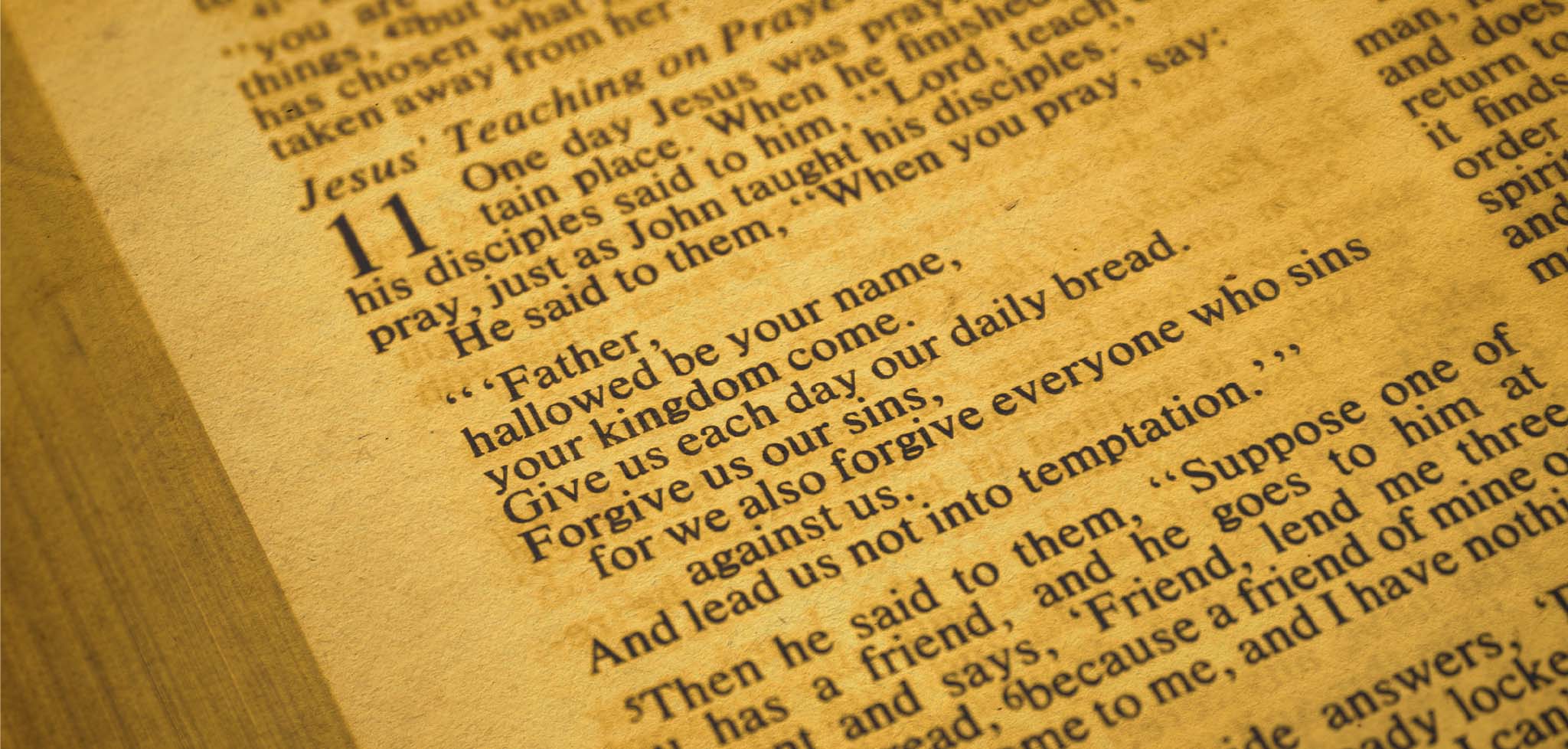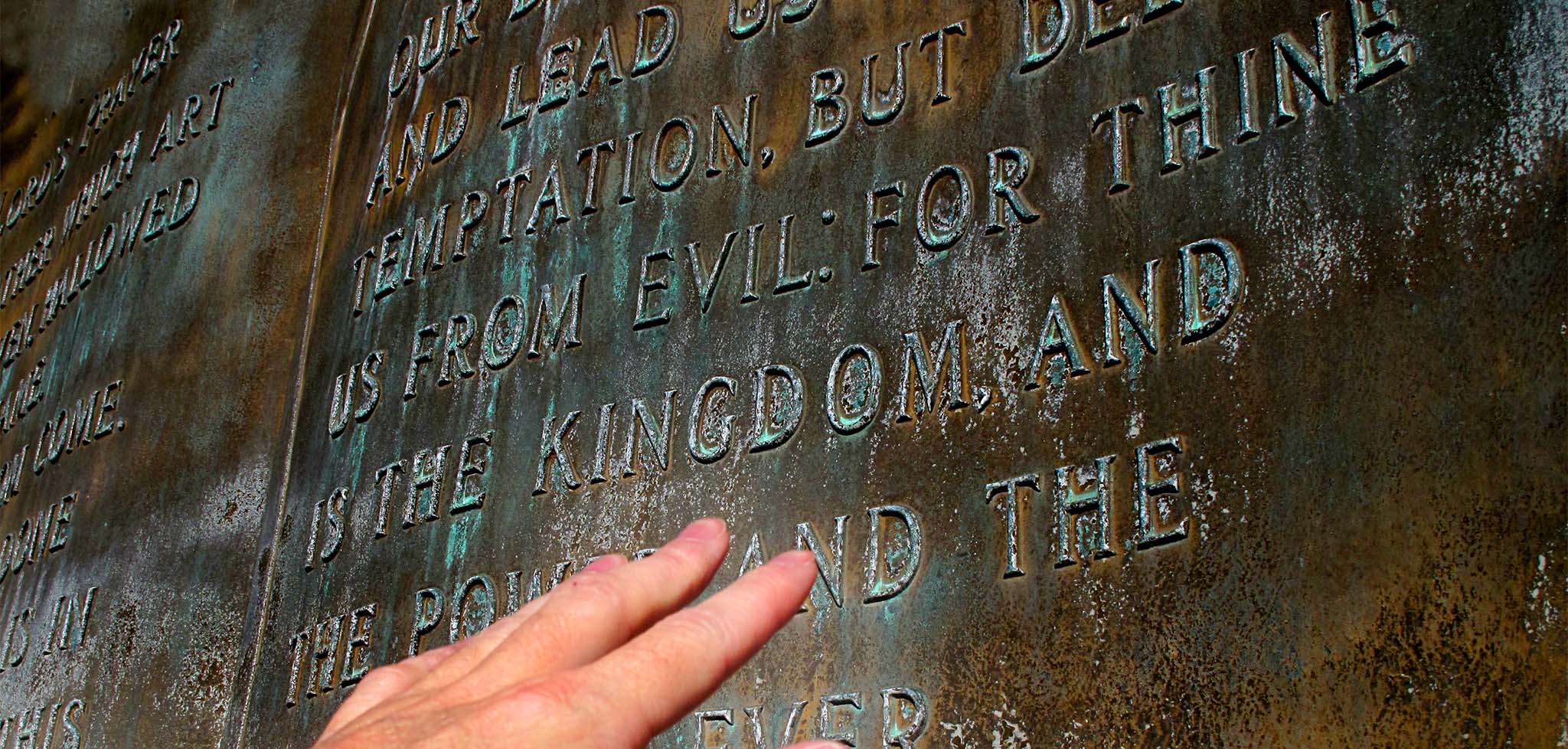The fountain pen recently delivered to my neighbor was from India. He told me that the pen had a special nib that made it capable of different strokes depending on the pressure applied. It was the latest addition to his collection.
As a child, he had watched his mother write with a fountain pen and he took pleasure himself in writing with a fine fountain pen. At the end of each day, he said, he wrote down things from the day in a journal that were interesting to him and things for which he was grateful. Each day, he used a different pen. I asked him if he found the practice calming. “Exactly,” he said. It also connects to things suggested by the Lord’s prayer.
The Lord’s prayer has a large frame.
It is not merely a strategy or a technique that allows us to perform better. It invites us to pray for a larger perspective, to pray for and remember the hope before us, and to trust God more. The first three petitions suggest that we are always in need of greater alignment with God and with who we were created to be and become. Sometimes, the first thing we need to do is take a step back.
We can sometimes be impatient about taking a step back. After all, we have pressing needs and concerns. Or we may feel that a religious practice doesn’t have much relevance to real world needs.
Give Us
But in the next petition, the prayer invites us to share our life with God. It begins where we often want to begin our prayers, that is, with the words “Give us.” Jesus invited us to pray for what we concretely need and provided an assurance that God hears and cares for us. The words “give us this day our daily bread” are an echo of a Biblical story from the Old Testament in which the Israelites were suffering from hunger in the desert after their deliverance from the Egyptian army. And God provided for them in the desert with mannah each day, i.e. “daily bread,” and quail. The Lord’s prayer not only invites us to pray concretely about what is going on in our life but also provides a reminder of God’s faithfulness in the past.
And then there are three assignments.
They are not onerous or limiting. Instead, they teach that our life can have a positive impact on the world and on others—-and that we will be blessed too by living into our best life. The first assignment is generosity and forgiveness, dimensions of love. Love is both giving and forgiving. Love creates new possibilities. Love is what we were made to share and expands our life.
The second assignment is self-awareness.
Self-awareness can keep us from an over-inflated sense of self, or one too small. Self-awareness can help us to use the strengths we have and to recognize how the strengths of others can complement our own. This assignment positively connects us to others. There is a gift here as well.
The final assignment is gratitude,
though it isn’t directly found in of the words of Jesus. Jesus had taught to pray for deliverance from evil when he taught the Lord’s prayer. The disciples recognized the act of deliverance in the cross and resurrection and added their own words of praise and gratitude: “for thine is the kingdom and the power and the glory forever.” These words invite us to recognize the gifts we have received and to add our own thanksgiving. Wherever we find ourselves, there are things we can recognize for which to be grateful. And gratitude nourishes the best in us. It enlarges our heart and life. It can strengthen us in challenging moments—and for the long race.
The Lord’s Prayer is about living with a sense of promise and possibility. It is about finding the strength to endure when life is hard. It is about the life for which we were made. And it is a prayer we can use every day, a prayer that invites us into an inner conversation as well as a conversation with God. And I am wondering if it would be a gift to myself, to write down the gifts of each day, lest I forget.


